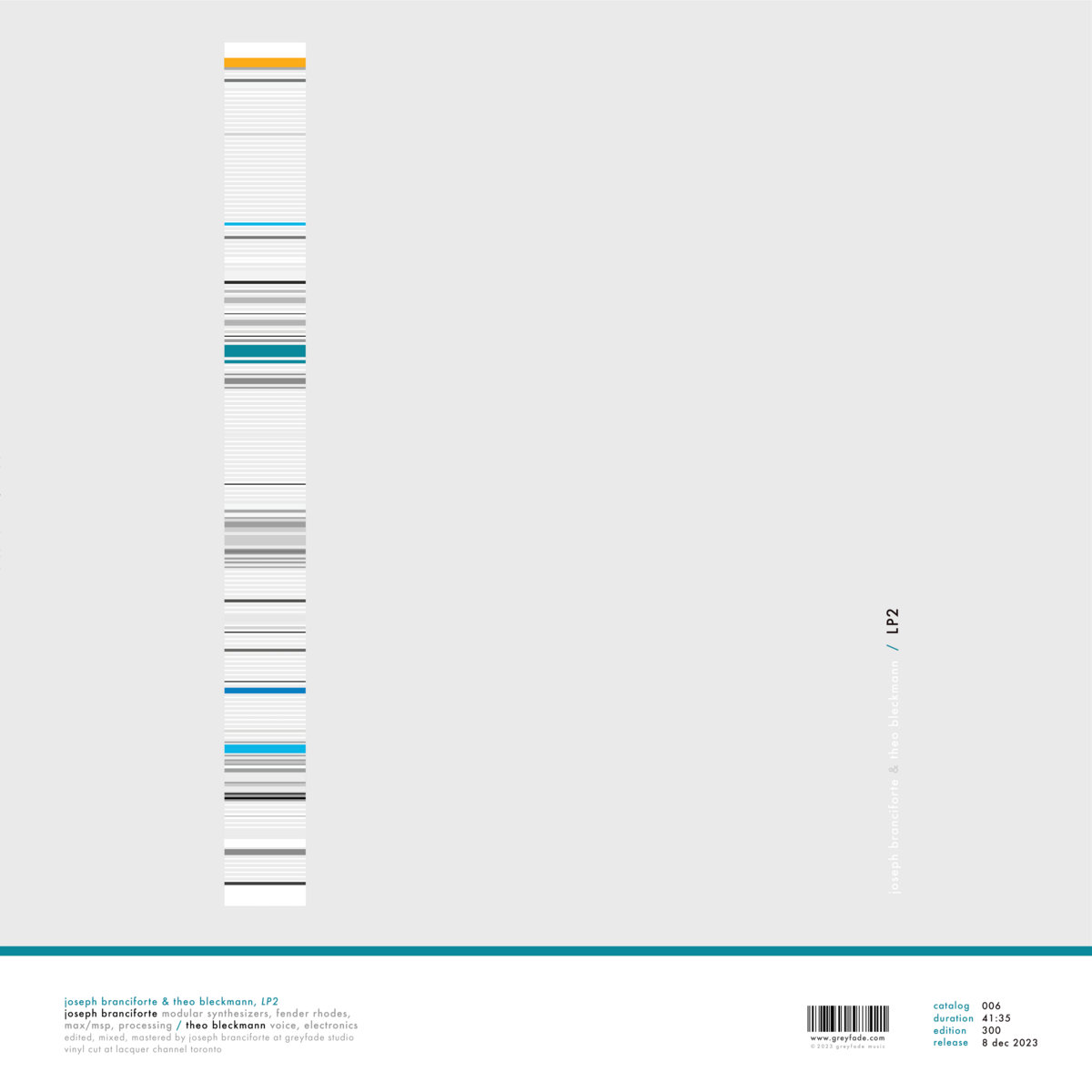no products in the cart
0

Mental images and memories are encoded in grayscale and shared across a grainy telegram wire. There’s a precise balance between the tension found in micro details and the spatial scope given for sounds to elongate. A fitting soundtrack for an unfolding mystery.
The sophomore release from vocalist Theo Bleckmann and electronic musician & producer Joseph Branciforte, LP2 is a follow-up, companion piece, and evolution of the shared musical language first developed on the duo’s debut, 2019’s LP1.
Whereas LP1 was recorded spontaneously – with no premeditation and minimal post-production – the sessions for LP2 proceeded somewhat differently.
“This time, in addition to free improvisation, each of us brought in a few ‘prompts’ or ‘scenes’,” recalls Bleckmann. These prompts could be a verbal description, a musical or textural seed, or more explicitly composed material.
The pair also allowed themselves the use of studio overdubbing, occasionally adding additional instrumentation to their improvisations after the fact. “The use of overdubs allowed us to further blur the line between improvised and composed,” says Branciforte. Indeed, one hears fleeting moments throughout the album when the dream logic of free improvisation and the premeditated nature of orchestration converge: a vibraphone doubling a meandering vocal line, or a stack of voices outlining an intricate chord progression. These moments reveal the duo's willingness to experiment with structure and form, while maintaining the spontaneity that made their first album so compelling.
On other tracks, such as “10.11.5” and “10.14.4”, Branciforte and Bleckmann present an isolated snapshot of a sound, bypassing the conventional rise and fall of improvisation and presenting only its static middle. “These ‘microloops’ were something we developed in our live set, as a way of getting away from the usual arc of building something up over five or ten minutes,” says Bleckmann. “They can happen instantaneously – and they make things a bit less predictable.”
The album’s final track, “9.23”, pushes outward towards a more explicitly composed sound, with some of the record’s most elaborate orchestration: Fender Rhodes, bass synthesizer, glockenspiel, vibraphone, and wavetable oscillator in counterpoint with the seemingly impossible vocal range of Bleckmann. It's an apt conclusion to the album’s unbroken narrative structure, and to the series as a whole, tying LP1 and LP2 together while hinting at ever more possibilities just out of sight.
€33,00
only 2 left

Mental images and memories are encoded in grayscale and shared across a grainy telegram wire. There’s a precise balance between the tension found in micro details and the spatial scope given for sounds to elongate. A fitting soundtrack for an unfolding mystery.
The sophomore release from vocalist Theo Bleckmann and electronic musician & producer Joseph Branciforte, LP2 is a follow-up, companion piece, and evolution of the shared musical language first developed on the duo’s debut, 2019’s LP1.
Whereas LP1 was recorded spontaneously – with no premeditation and minimal post-production – the sessions for LP2 proceeded somewhat differently.
“This time, in addition to free improvisation, each of us brought in a few ‘prompts’ or ‘scenes’,” recalls Bleckmann. These prompts could be a verbal description, a musical or textural seed, or more explicitly composed material.
The pair also allowed themselves the use of studio overdubbing, occasionally adding additional instrumentation to their improvisations after the fact. “The use of overdubs allowed us to further blur the line between improvised and composed,” says Branciforte. Indeed, one hears fleeting moments throughout the album when the dream logic of free improvisation and the premeditated nature of orchestration converge: a vibraphone doubling a meandering vocal line, or a stack of voices outlining an intricate chord progression. These moments reveal the duo's willingness to experiment with structure and form, while maintaining the spontaneity that made their first album so compelling.
On other tracks, such as “10.11.5” and “10.14.4”, Branciforte and Bleckmann present an isolated snapshot of a sound, bypassing the conventional rise and fall of improvisation and presenting only its static middle. “These ‘microloops’ were something we developed in our live set, as a way of getting away from the usual arc of building something up over five or ten minutes,” says Bleckmann. “They can happen instantaneously – and they make things a bit less predictable.”
The album’s final track, “9.23”, pushes outward towards a more explicitly composed sound, with some of the record’s most elaborate orchestration: Fender Rhodes, bass synthesizer, glockenspiel, vibraphone, and wavetable oscillator in counterpoint with the seemingly impossible vocal range of Bleckmann. It's an apt conclusion to the album’s unbroken narrative structure, and to the series as a whole, tying LP1 and LP2 together while hinting at ever more possibilities just out of sight.


we write about records, events, and other small discoveries.

